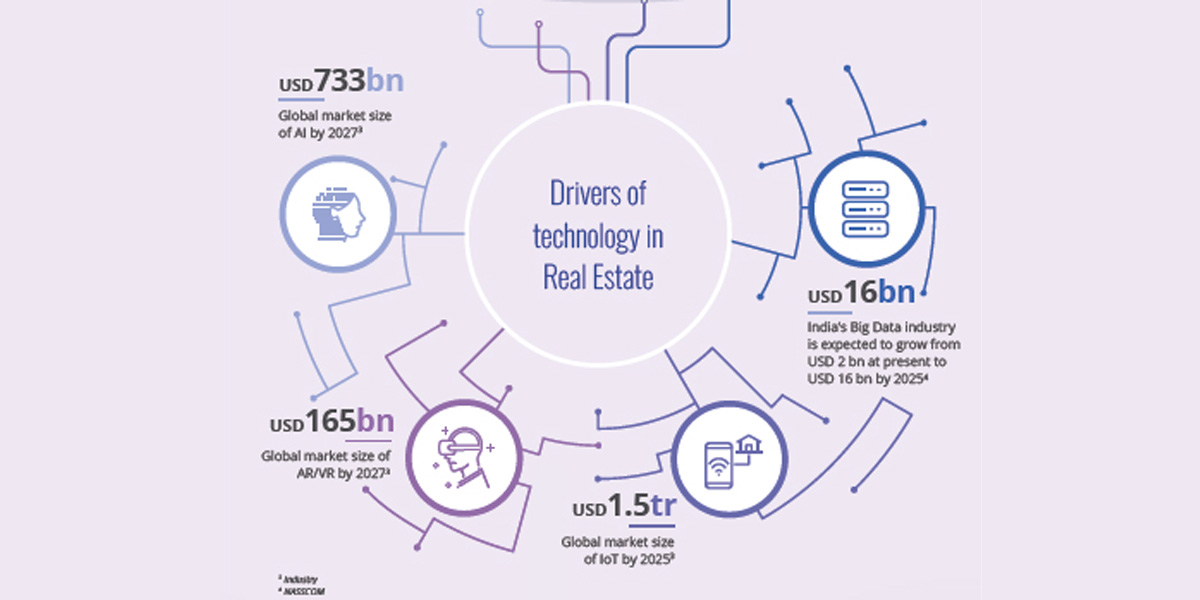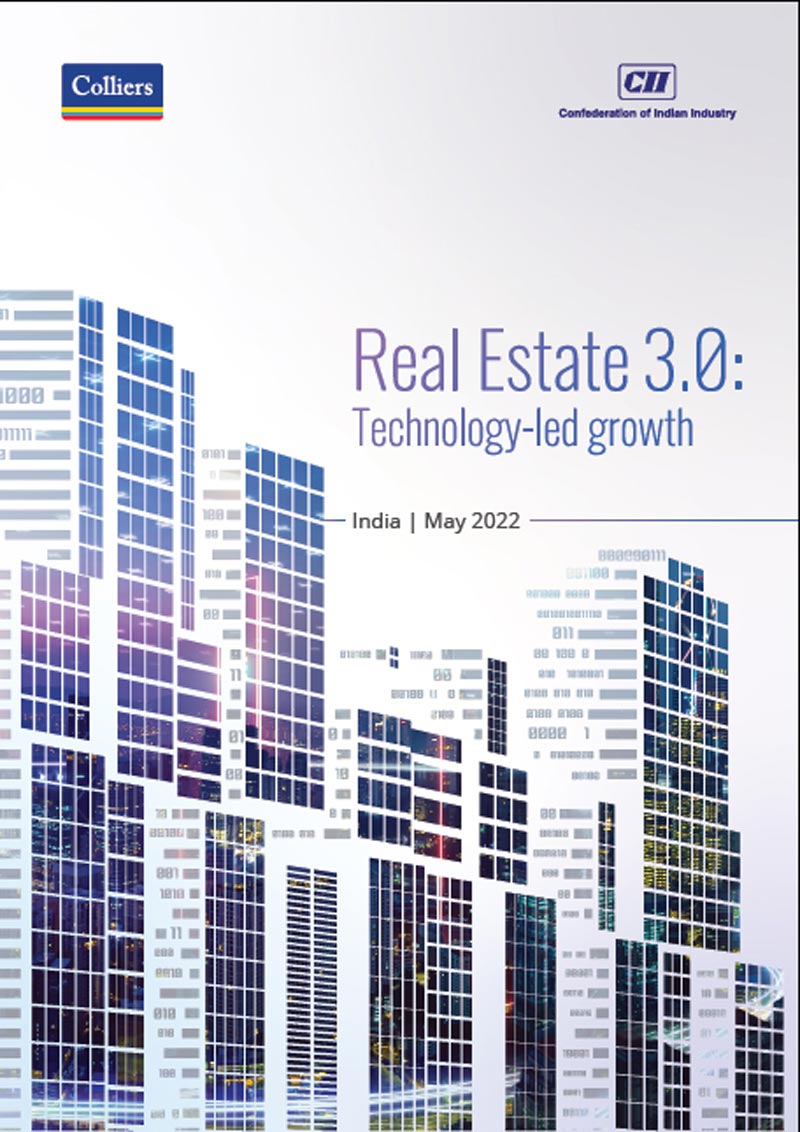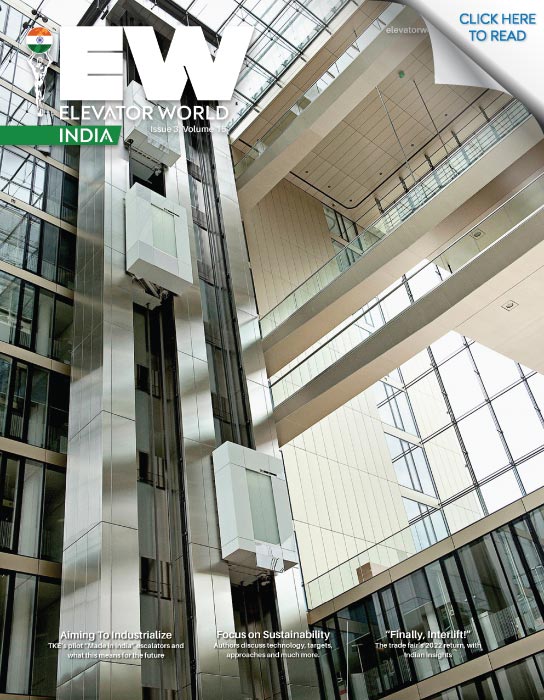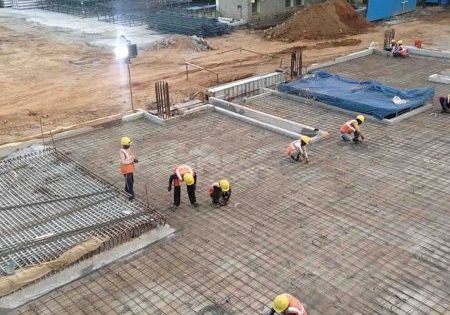CII-Colliers report on “Technology-led growth” released.
submitted by CII–Colliers
“Real Estate 3.0: Technology-led growth,” the rise of PropTech is sweeping the real estate sector as an innovative digital transformation. Technology in the real estate segment, which was largely confined to listing residential and commercial properties, is now infiltrating every aspect of real estate. This and many other important topics, including sustainability, were brought forth and discussed by real estate captains at the premier edition of CII-Colliers: Tech in Real Estate Conference held on May 27. The Summit was attended by 600-plus industry delegates across India and witnessed the release of CII-Colliers Report, titled “Real Estate 3.0: Technology-led growth.”
Ramesh Nair, chairman — CII Conference on Tech in Real Estate and CEO, India, and managing director, Market Development, Asia, Colliers, said:

“To give a leg-up to their businesses, landlords and occupiers are focusing on technology at the core of their strategy. For developers, high-performance buildings can lead to better occupier retention and lower operational costs. Studies suggest that full-scale digitization can help the construction sector generate cost savings of 12-20% annually. Our APAC benchmarks too suggest that green buildings can lead to operational cost savings of up to 37%. However, it is not just more savings. Such buildings also lead to enhanced wellness of employees in the buildings. Overall, the real estate sector is on the cusp of a change, with huge untapped opportunities for higher efficiency and savings. In the next five years, technology is going to be a game-changer in altering the workplace.”
A wide range of disrupting technologies, including AI, virtual reality (VR), Internet of Things (IoT) and blockchain, can play a pivotal role in reshaping the real estate business. Colliers’ latest report shows that technology has set its pace to re-imagine the core processes and business models of real estate. Moreover, with the onset of the pandemic, technology has advanced at a faster rate as people across the globe have started adapting to the rapid change. The report, in detail, describes how technology is making an impact in the domains of construction management, project management and portfolio management in the real estate sector.
From planning and design to construction techniques to building facilities management and property management, developers and occupiers are exploring the usage of technology across the spectrum. They are reimagining existing processes and norms, with technology paving the way for the “buildings of the future.” PropTech is expected to grow significantly over the next few years, which will result in ease of transactions, transparency and advanced technology.
Technology Can Bring Radical Changes to the Construction Sector
Over the last two years, developers have been more open to integrating technology at various stages of construction. Developers have started using tools like drones, robotics, building information modeling (BIM), 3D printing and VR to improve quality, reduce the time taken for construction and elevate the efficiency of construction technologies. Further, high-performance buildings (HPB) too have evolved with the use of technology, which can help achieve sustainability and reduce carbon footprints. Developers have also started using popular tools for construction management like CoGence, CoPro, Primavera and Microsoft Projects, which will further increase efficiency in construction.
Technology — a Key Enabler in the Workplace
With the world moving toward a collaborative work environment with improved efficiency, technology plays a very central role. While landlords can use technology as a tool to attract tenants, occupiers can use it as a tool to improve workplace culture and enhance innovation and productivity. Further, the use of technology across the spectrum is likely to boost the overall employee experience and help achieve green goals even in a hybrid working environment.
Technology Provides a One-Stop Solution for All Stakeholders and Eases the Transaction Process
Technology is playing a pivotal role in the residential segment by facilitating owning/renting property for end users, landlords, tenants, investors and brokers starting from the initial screening to closing a deal, seamlessly. Overall, technology will change the way business is conducted, provide insights to tenants on how the space can be used and help evaluate investments, leasing and purchasing opportunities.
Overall, technology has gradually seeped into almost all facets of the real estate sector. PropTech is expected to holistically grow with a combination of adopting AI and machine learning, blockchain, VR/AR, SaaS and IoT. The rise and swift adoption of technology will be the cornerstone to maintaining and elevating operations in the new normal that we are in. The real estate sector is continuously evolving and bringing with it greater transparency and accountability. These factors are vital in bringing more investments to the sector and heralding it toward global standards.

In his foreword, Nair points out that, while the real estate sector saw fragments of digitization over the last decade, it is the pandemic that effortlessly wove it into the sector. The use of technology has grown by leaps over the last two years in the sector, penetrating various aspects. This also comes at a time when technology is a major driver of India’s economy. With the country’s vision of a US$1 trillion digital economy over the next five years, the real estate sector will reap immense benefits from large-scale digitization.
Something that was considered “good to have” pre-pandemic is now becoming a requisite. There is no denying that stakeholders in the sector need to embrace technology to remain relevant. It is not just online marketplaces anymore, but technology is now penetrating all aspects of the real estate sector. Developers, property owners and office occupiers are also pushing boundaries to incorporate technology across the spectrum.
The benefits from technology have been wide ranging as seen in global markets achieving greater efficiency and incurring lower operational costs, as well as building climate-conscious buildings. Full-scale digitization can help the construction sector generate cost savings of about 12%-20% annually, as per the World Economic Forum. Colliers Research states that technology-led green buildings can lead to operational cost savings of up to 37%. Stakeholders in the sector need to look beyond. The focus must shift from “Can the initial investment in technology lead to enhanced returns?” to “How can technology create value to the business?”
Overall, technology is now primed to revolutionize all facets of the real estate sector. With ESG (Environment, Social and Governance) taking center stage for various stakeholders, new technology tools are emerging that provide companies with critical insights to streamline ESG targets. In the next few years, technology will upturn the Indian real estate business, bringing in efficiencies and creating a more transparent sector.
Get more of Elevator World. Sign up for our free e-newsletter.











